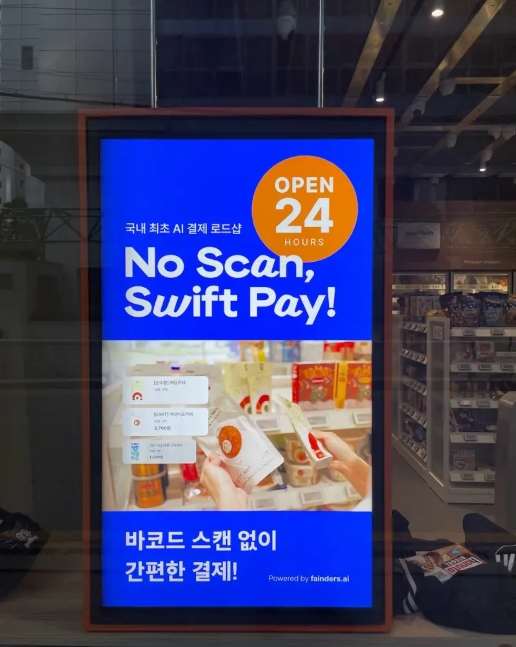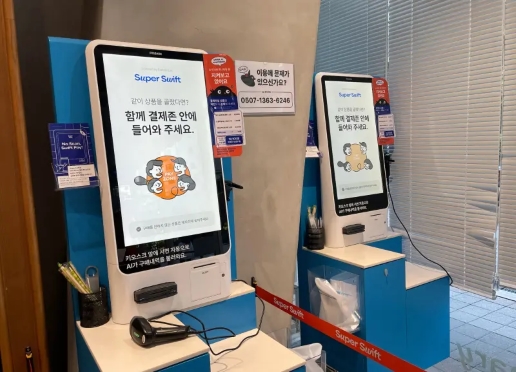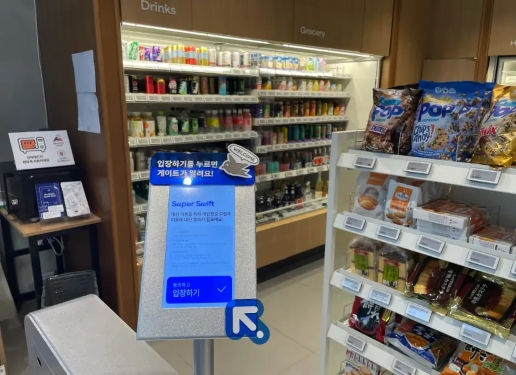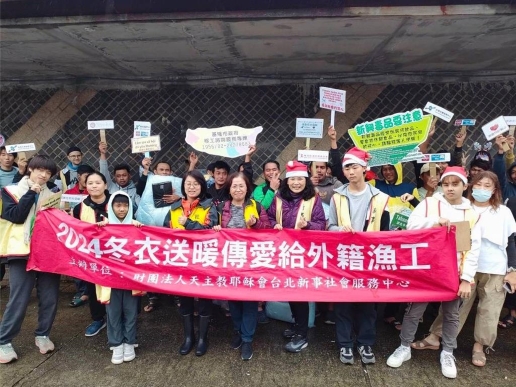In an exclusive interview with NOWnews, Fainders.AI's Market Development Manager, Kim Sung-tae, highlighted the challenges faced by traditional convenience stores in South Korea due to declining birth rates, rising wages, and labor shortages. These issues have made it increasingly difficult for many stores to maintain 24-hour operations, as younger generations show less interest in part-time jobs. However, with the advent of AI technology, the rise of "unmanned smart convenience stores" offers a transformative opportunity for the retail industry. A "Unmanned Convenience Store" That Operates 24 Hours Without Manpower (Photo/ Courtesy of NOWnews, Photo by Yang Zhijie)
A "Unmanned Convenience Store" That Operates 24 Hours Without Manpower (Photo/ Courtesy of NOWnews, Photo by Yang Zhijie)
According to Korean media statistics, South Korea boasts 56,000 chain convenience stores, with GS25, 7-11, and CU leading the market. While there were only 208 unmanned stores before the pandemic in 2019, the number has skyrocketed to 3,310 in just five years—a growth rate of nearly 16 times. This shift reflects the increasing trend of automation in the retail sector.
Kim noted that during the pandemic, delivery services and e-commerce platforms like Coupang met the demand for "contactless consumption." However, physical stores continued to face challenges, such as declining foot traffic, rising prices, and an increase in the minimum wage. Over the past decade, Korea’s minimum wage has nearly doubled, and the aging population has exacerbated the labor shortage, making these challenges unavoidable.
Founded in 2020, Fainders.AI offers AI retail technology at a third of the cost of its competitors. By leveraging computer vision recognition and deep learning, customers in unmanned stores can enjoy a "grab-and-go" shopping experience. The system uses ceiling-mounted cameras and shelf weight sensors to track product selections, with final checkout completed at self-service kiosks. This drastically reduces labor costs and enhances operational efficiency.
A visit to the "smart convenience store flagship" in Seoul revealed a compact 10-pyeong (approximately 33 square meters) space. The store offers a range of snacks, beverages, daily necessities, and pet products, and includes microwaves and hot water dispensers. The shopping layout follows a "U-shaped" design, with automated gates at the entrance allowing customers to enter upon verification. Throughout the process, the AI system records customer selections, eliminating the need for cashier assistance during checkout. "Unmanned Convenience Store" No Longer Requires Cashiers for Checkout (Photo/ Courtesy of NOWnews, Photo by Yang Zhijie)
"Unmanned Convenience Store" No Longer Requires Cashiers for Checkout (Photo/ Courtesy of NOWnews, Photo by Yang Zhijie)
Kim acknowledged that while the AI technology achieves 98% accuracy, there are still challenges, such as errors caused by customers exchanging items with one another. Unlike other unmanned stores that require app downloads and credit card registration, Fainders.AI simplifies the consumer experience. This ease of use, especially for seniors, foreign tourists, and the general public, contributes to the technology's lower costs compared to competitors.
Currently, GS25 and CU's parent companies are collaborating with Fainders.AI to trial different unmanned store models. The flagship store’s success suggests that these "cashier-free" smart stores are poised to become mainstream, reshaping the future of retail not only in South Korea but worldwide.







